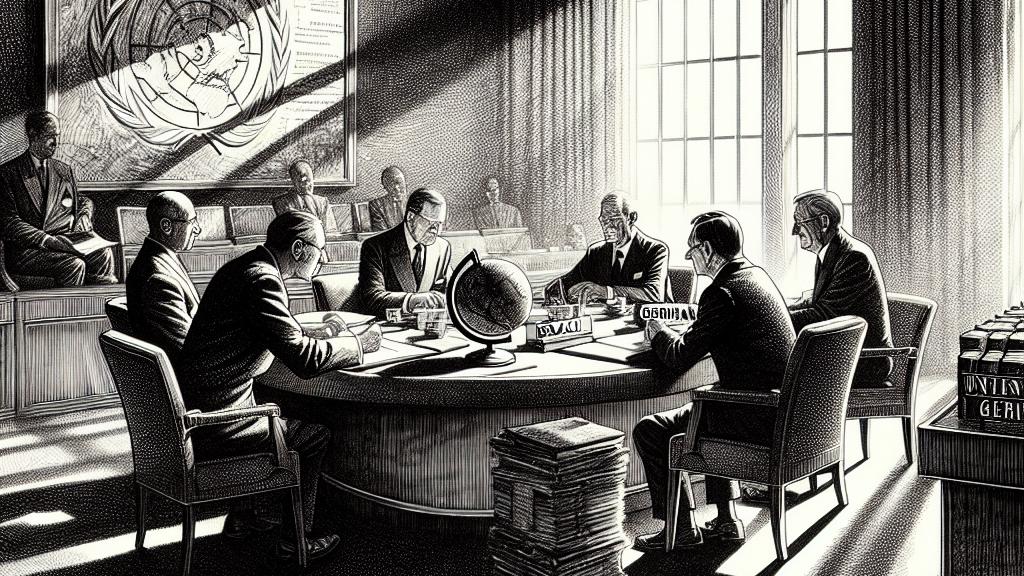EAM Jaishankar Engages with G4 Foreign Ministers in New York
Overview
- EAM Jaishankar attended a pivotal G4 nations meeting in New York, focusing on crucial UNSC reforms.
- The G4, consisting of Brazil, Germany, India, and Japan, rally for permanent seats at the UN Security Council.
- Their discussions underline the urgent need to modernize a decades-old system that no longer reflects global realities.

Context of the Meeting
As the sun rose over New York during the 79th United Nations General Assembly, External Affairs Minister S. Jaishankar found himself at a crucial crossroads. This meeting with the foreign ministers of Brazil, Germany, and Japan was more than just an engagement; it was a confluence of aspirations and ambitions. Established in the aftermath of World War II, the UN Security Council (UNSC) has not evolved sufficiently to meet the demands of our current landscape. The G4 countries argue passionately for reforms, insisting that their inclusion as permanent members would enrich the Council's decision-making process and ensure a more rounded representation of contemporary global issues.
Significance of the G4
The G4 nations showcased not just a coalition but a shared vision for a more effective international governance structure. The significance of such unity cannot be understated. They are committed to supporting each other’s bids for permanent UNSC membership, highlighting the necessity of a diverse perspective in discussions that shape world policies. For instance, the ongoing conflicts—such as the humanitarian crises observed in Ukraine and Israel—demonstrate a pressing need for inclusive dialogue. Jaishankar articulated this necessity, citing India's dedication to global stability, and engaging with counterparts like Venezuela’s Foreign Minister illuminated India's strategy of fostering bilateral relationships while pushing for a broader reform agenda. This multifaceted approach underscores the depth of India’s commitment to not just inclusion but to substantive change.
Future Prospects and International Dynamics
As the G4 resolutely champions change, they face uphill challenges from groups like the Coffee Club, which vehemently opposes expanding UNSC permanent seats. This resistance raises critical concerns about the future landscape of international relations and highlights the importance of equitable representation. Why is this reform imperative? More than 60% of UNSC discussions involve issues particularly affecting Africa, yet African nations lack direct representation among permanent members. This disparity fuels the call for change, demanding a move towards an equitable power-sharing model. The G4’s pursuit of reform reflects an understanding that a robust and adaptable UNSC is essential for effectively responding to complex global crises. Notably, this meeting in New York represents a pivotal moment that could reshape the global governance framework, challenging outdated norms to create a more inclusive and responsive international system.

Loading...